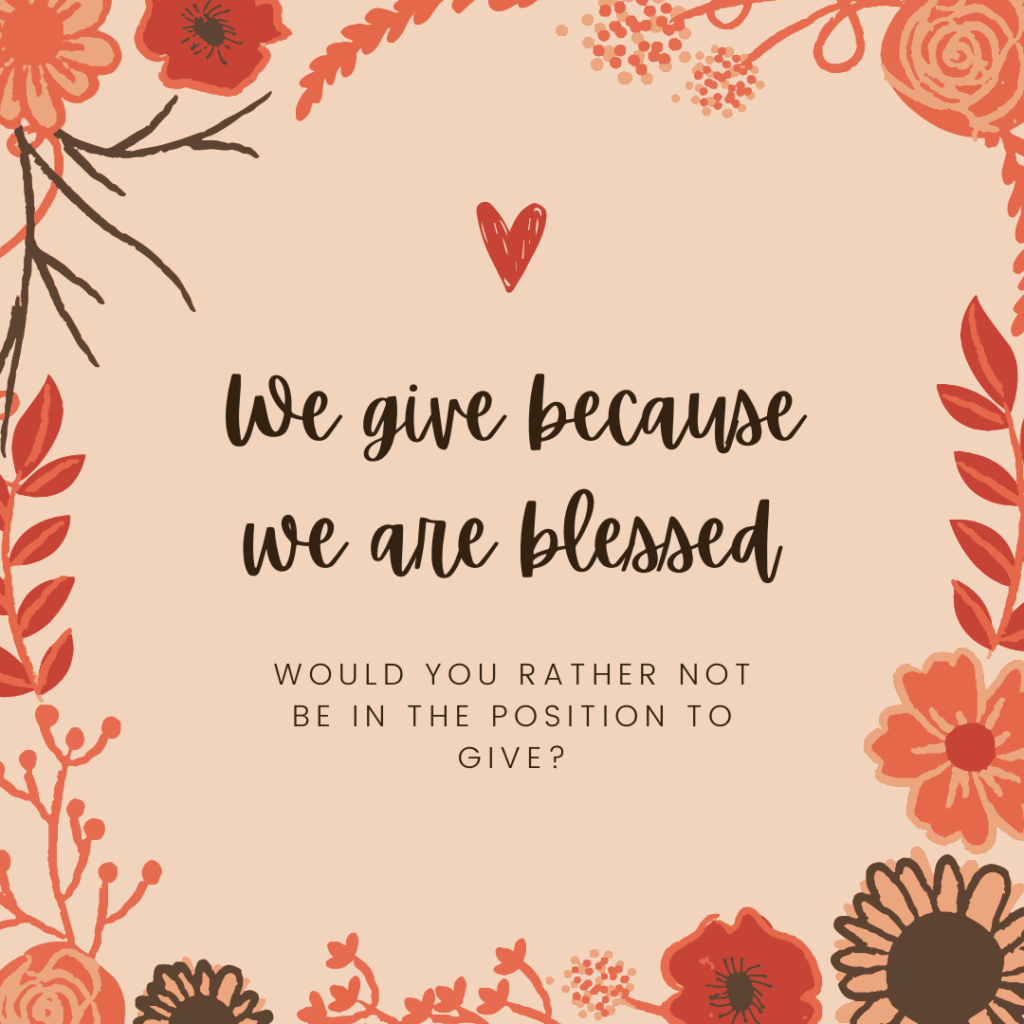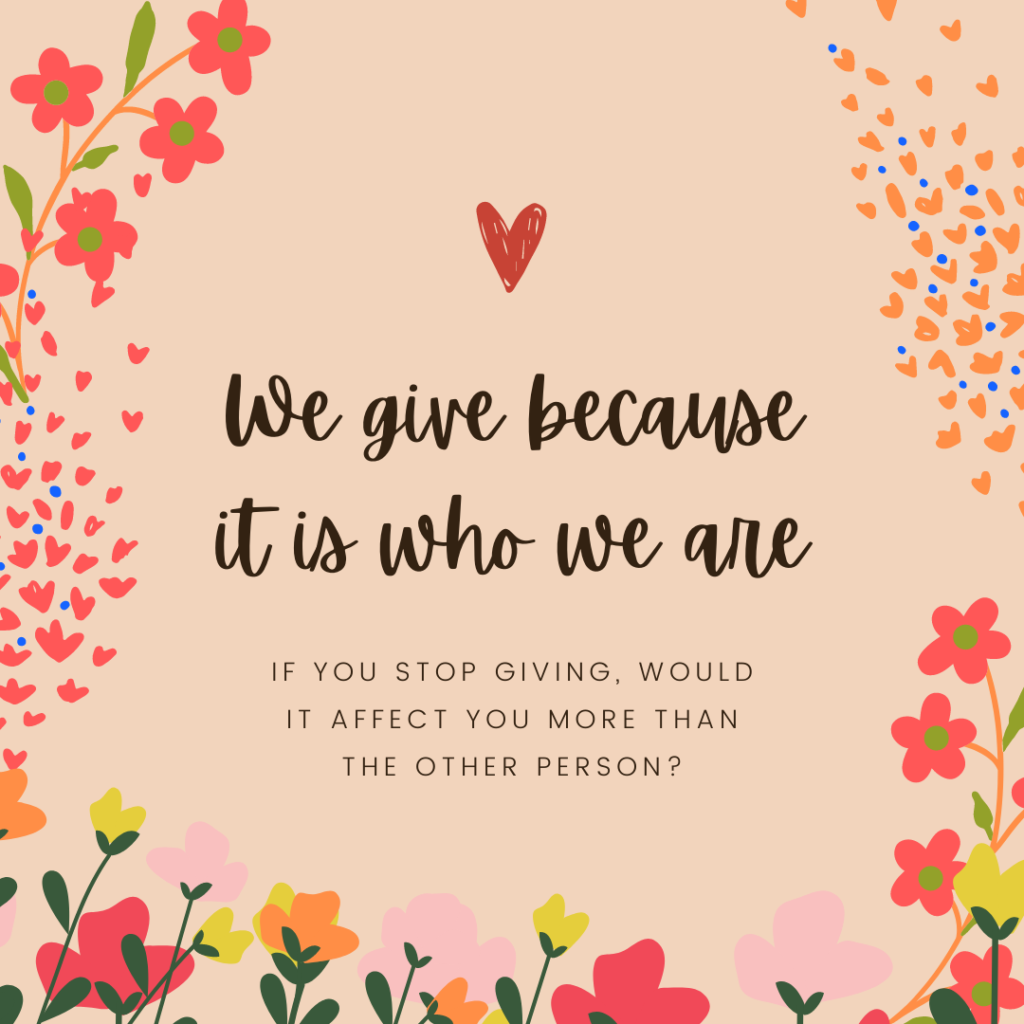Due to family gathering restrictions during covid, my mother cooked ‘takeout’ beehoon (rice vermicelli) with yummy fried chicken wings and pork chunks for our family every Friday. I would always bring her a small gift when I collect her food – anything from tau huay (beancurd dessert) to tinted lip balm. Once I noticed how kiddo stared at me curiously as I asked myself ‘what gift should I bring today?’ and explained to her:
Us and Grandma, it’s like the symbiotic relationship of the cleaner fish and shark – We help each other, and that’s maintaining the relationship
Mei, to kiddo
Reciprocation. This is our human tendency to repay gifts and favors. How many times we hear in Suits, ‘I owe you’ as the lawyers trade favors. We seem to have a complicated relationship with reciprocation, sometimes it becomes obligatory and annoying while other times, it shows our appreciation and love.
I was reminded of this when I read how Jacob brought gifts for Esau (Genesis 32). Though Jacob meant the gifts as restitution for stealing Esau’s blessing, he also gave because of the blessings he had received from God. Esau had forgiven Jacob and welcomed him to live in the land of Canaan.
Take, I pray thee, my blessing that is brought to thee; because God hath dealt graciously with me, and because I have enough. And he urged him, and he took it.
Genesis 33:11 (KJV)
Reciprocation is very much a part of Singapore families; it was studied that older Singaporeans gave their time and effort (e.g. babysitting grandkids) in return for money and material goods1. Sometimes we wonder if it is too transactional, but mostly, we view it as family members caring for each other.
Take a pause today, and think about reciprocation.

Being Mindful of Reciprocating
- We are blessed


We reciprocate for many reasons, and let’s think of some positive ones here:
- We give back as a way of saying thank you – a thank you that is more than lip service 🎁
- We give because we are blessed – Jacob was certainly blessed by God, and not just in possessions but the presence of God. In Genesis 32:1 when Jacob was just starting his journey back, God’s angels accompanied him. These two verses are quite easy to miss because they are sandwiched between the escape saga and meeting Esau. It is out of this world – who walks so closely with God that you see his angels, and it is like an everyday event?
And Jacob went on his way, and the angels of God met him. And when Jacob saw them, he said, This is God’s host: and he called the name of that place Mahanaim.
Genesis 32:1-2 (KJV)
It is Who We Are
- We give because it is who we are – I remember birthdays and sometimes I feel hurt why so few people remember mine. One year it ate at me so much that I voiced it to my spouse who paused, and wisely said, ‘It is who you are’. Since then, I still feel a little sad but not resentful.
- We give to maintain the relationship – Sometimes the reciprocating give a reason to show appreciation, care and love. Imagine if we stop the reciprocation, will we be stopping one way of maintaining the relationship?
Mindful of Reciprocating

Genesis 33 Journaling Prompt
Who are the people in your life that you give to?
Are you receiving gifts, time or affection from someone who you have neglected in the past year?
God, you know my feelings on reciprocation. It is not the act, but who – I want to give/ reciprocate, but our relationship has gone too awkward. Help me to make this an act of love, not obligation.
Books on Giving
I get commissions for purchases made through links in this post.
I selected these books based on reviews, and realized that I hadn’t read any book on giving. I’m putting this on my list of books to read (yes, I started tracking what I read last year – I have a target on how many books to read a year, we can’t let Bill Gates and Warren Buffet do all the reading in the world 😉)
1. Verbrugge LM, Ang S. Family reciprocity of older Singaporeans. Eur J Ageing. 2018;15(3):287-299. Published 2018 Jan 19. doi:10.1007/s10433-017-0452-1



